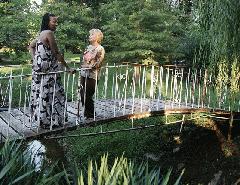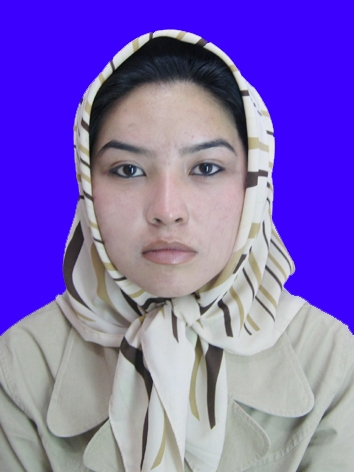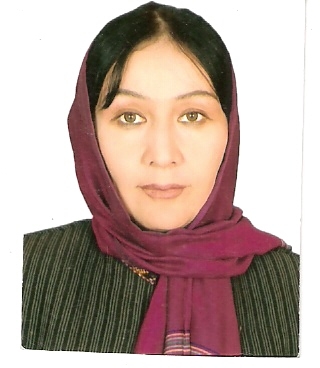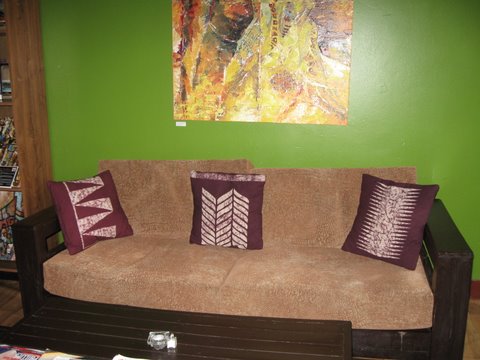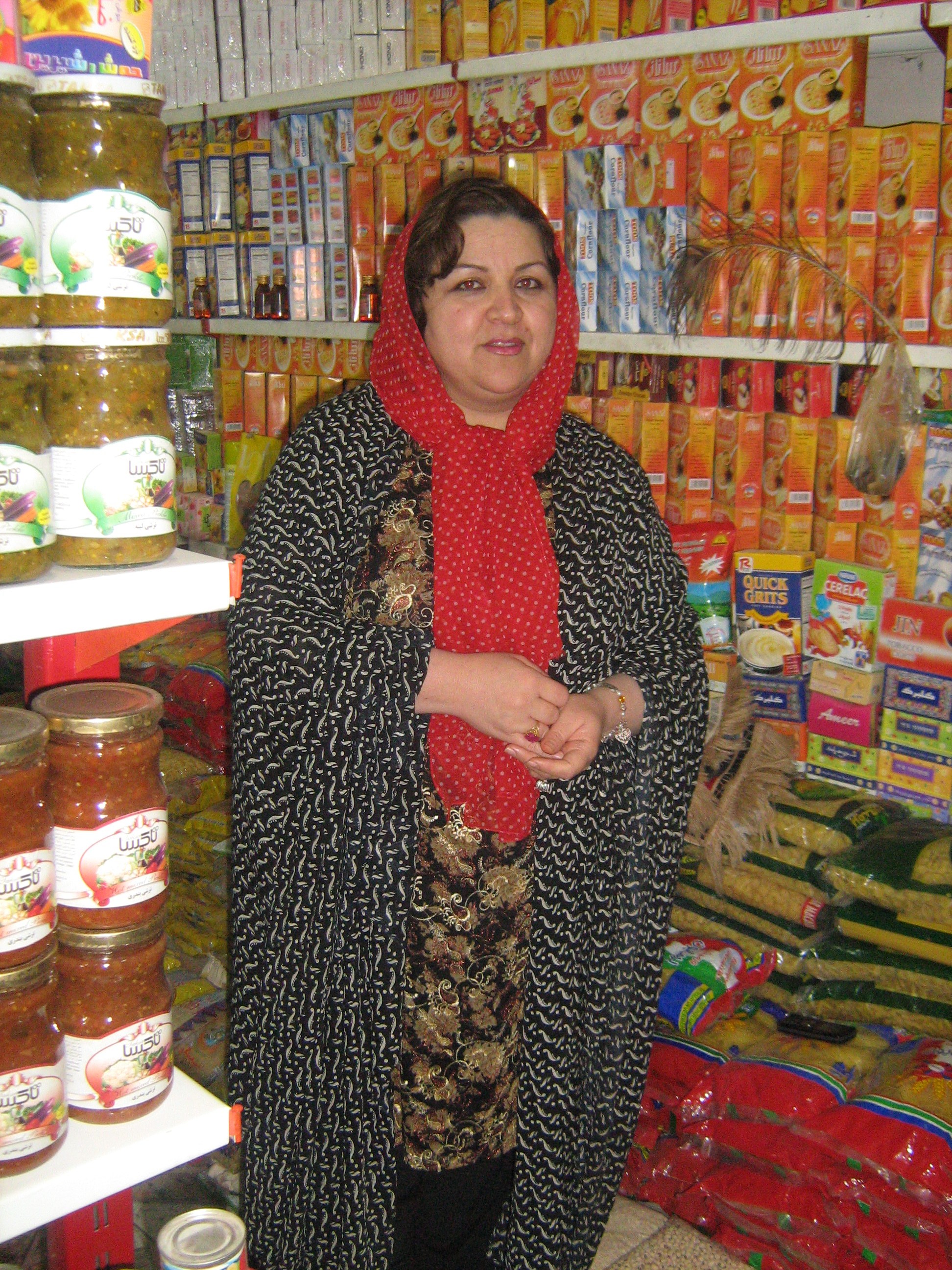Rwanda Trip Blog - Martha Parker
May 12th, 2009Day 3 Rwanda
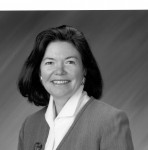
Martha Parker
Rwanda is a country on the move. My hosts, Eron and Zachary Nsenga (he is the Minister of Defense and former Ambassador to the US) tell me that President Kagame has formed an international advisory board - including some of the best business and economic minds in the world - to advise Rwanda on its development. Kagame believes that the government ought to be run like a business - lean, efficient and corruption free.
The country is busy at work laying fiber optics which will link to African neighbors as part of an East African Union that will bring high speed broadband via an undersea cable recently completed by contractors including Global Crossings.
President Kagame has placed a high priority on training women entrepreneurs and Peace through Business is gaining a reputation for its effective, focused training of our women.
Our official day begins with a visit to the hardware supply store of Eron Nsenga who graduated from the program last year and is also a teacher-mentor for the students this year. She told us of how last year she had a 5 x8 store, storing only a few items. After the program and working with one of the professors from the Peace through Business program last year, she thought more strategically about her purchasing. She learned to monitor her market and to buy “ahead” of what might be needed. As a result her store has grown and she now has doubled her space. In addition, based on her training, she also added new items to the store - including the selling of electricity cards. Electricity cards allow Rwandans to buy pre-paid electricity. This replaces the need (at least now) for a bureaucracy to handle billing and collection. Next year Eron (and her brother -an engineer by training) plan to add seasonal items to attract more customers.
Next we visited Catherine Bitwayki, an entrepreneur who is brimming with good ideas. She has started several businesses including selling telecommunications (cell phone time). What is remarkable about Catherine is her gentle but keen intelligence in addressing needs. For example, she determined that Kigali had no efficient way to buy and sell property, so she talked to the Mayor of Kigali, Mrs. Aisa Korabo Kacyira, to establish what in the US we would call the first MLS system.
Our next stop was the Minister of Gender, Dr. Jeanne d’Arc Mujawamariya, former minister of Education. She talked about the essential work of Peace through Business and the need to expand our work into a Women’s Business Center. She spoke about the need to continue educating women in entrepreneurial activities - and the hope that we could one day expand our program to include women who do not speak English. Although English is now the official language of the country, only a small percentage actually speak it fluently. We discussed many possibilities to continue the relationship including an expanded women’s center.
One of the important findings from this trip is the graduates of our program are assuming leadership in several important ways. First, they are employers - adding jobs to the economy by hiring a few men and women to in one case more than 100. Second, they are improving their communities not only by paying a fair wage but also by implementing clean drinking water for their rural communities.
Day 4: Visit to our Sarah’s dairy farm south of Kigali. Sarah is a graduate of our program this year and will be coming to the US for additional training. A former UN development officer, Sarah milked cows on her family farm as a child and never lost the love of the land. She represents the new agribusiness leader. She has a herd of milk producing cows. Each cow’s lineage has been traced, so she knows exactly what each cow can potentially produce and its family history of disease. She breeds her cows according to scientific methods - dividing them by pregnancy term. Cows less than three months are in one section, cows more than three in another and cows ready to give birth are in another location. Each employee is given 4-5 cows to tend, and the employee that keeps their stall the cleanest gets the monthly bonus.
She breeds her cows via artificial insemination, and whenever a bull is produced, she gives it to her neighbors to breed - thereby improving the local herd. This is not only a neighborly thing to do, but also makes good business sense. Sarah’s demand has grown so much that she buys milks from the local farms - who have of course improved their herds because of the stronger bulls.
She also has shown ingenuity in pumping water to growing stations that are around 500 ft above the valley floor. Originally the local farms hauled the water by bucket - and tended to have only muddy water for drinking. She surveyed the situation and designed a new water delivery system which draws from natural water sources in the hills - in natural gravity feeds pipes the water to a pumping station that is then piped to growing stations throughout the farm.
She also approaches personnel management in a very intelligent way. Her chief manager is a veterinarian who is responsible for the health of the herd and for all hourly employees. He has complete authority. In order to draw him from the city on a full time bases, Sarah built him a small house, installed electricity (not generally available in the area), and will be buying him a TV for news and internet connections - which in Rwanda are all direct satellite connections.
Our second visit of the day was a 2-hour trip to the East of the capitol city where we visited a coffee “station.” Her Immy, another 2009 graduate of our program, was in the process of final installation of a coffee drying station. Located in the mountainous region - in a valley floor 2000 ft below the entrance to her land, she is not only contrasting the coffee drying station, but is also building a sampling room and plans to develop the area. This is critically important to Rwanda’s future for several reasons. First, the region is very poor- where few have enough to eat - she has hired 60 workers and plans when she is operation to employee upwards of 100 full time employees. Second, coffee production is part of the long term plan for Rwanda - which grows such of the best coffee in the world. Finally, Immy has plans to partner with a local cooperative to buy coffee from small plots of her neighbors and talks about setting up health insurance and savings cooperatives for her neighbors who supply the coffee. Her operation is a prime example of Rwanda ingenuity and good business sense.
As noted earlier, the long-term government plan for Rwanda is to transform into a business driven economy - and the IT development will support the women as they develop.
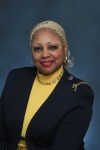
 Over the next 5 days, we will receive blogs, pictures and news items from the Peace through Business ® delegation on the ground in Rwanda, Africa. We will pass a “sampling” to you every couple of days. Please find below a combination of messages. Visit these websites and blog sites for additional information daily:
Over the next 5 days, we will receive blogs, pictures and news items from the Peace through Business ® delegation on the ground in Rwanda, Africa. We will pass a “sampling” to you every couple of days. Please find below a combination of messages. Visit these websites and blog sites for additional information daily: 
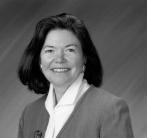 From Martha Parker, IEEW Board Member and President of Parker & Associates:
From Martha Parker, IEEW Board Member and President of Parker & Associates: